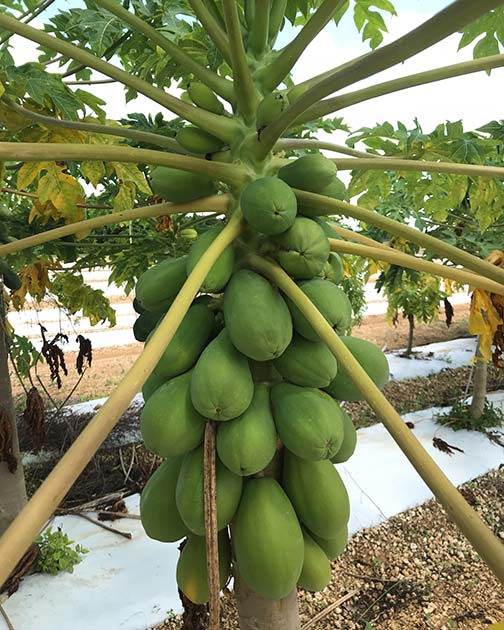
HOMESTEAD, Fla. – Popularity in papaya prompted University of Florida scientists to conduct a research trial. The results, just published in Scientia Horticulturae, examines 21 different varieties ripe for growing in South Florida for fruit quality, aroma, plant height and yield components.
“This research is timely as growers are looking for higher value crops that resonate with consumers,” said Alan Chambers, a tropical plant geneticist at the University of Florida Institute of Food and Agricultural Sciences (UF/IFAS). “Additionally, consumers are looking for novel fruit and fruit with superior quality.
“This work helped us identify diverse papaya cultivars that grow well in southern Florida. It also identified many types that should be avoided due to poor yield or quality.”
Research Specifics
The trial was conducted at the UF/IFAS Tropical Research and Education Center in Homestead, Florida and featured diverse papaya cultivars obtained from the United States Department of Agriculture Agricultural Research Service (USDA-ARS), and the Tropical Plant Genetic Resources and Disease Research unit in Hilo, Hawaii.
“One of our major objectives in the trial identifies the best ‘solo’ type papaya for southern Florida. These papayas are worth more than common papayas, and they have a superior flavor,” he added. “‘Solo’ type papayas are a good option for those looking to diversity their crops. We think that ‘solo’ papayas are an attractive option for more people because they lack the “musky” aroma that is so unfavorable to many people.”
Papaya can produce yields within the first year after planting — a rare feature among perennial tropical fruits. Unfortunately, expansion of the papaya industry in South Florida is hindered by low prices and a lack of varieties resistant to the papaya ringspot virus (PRSV).
“We are working to address these challenges through our papaya research and breeding program,” said Sarah Brewer, a graduate research assistant on the team. “Through this trial, we have identified papaya varieties with excellent fruit quality characteristics and strong performance in the field. We are now using these varieties in our breeding program, in combination with PRSV-resistant lines. The ultimate goal is to develop virus-resistant, ‘solo’ papayas that grow well here in Miami-Dade County.”
Click here for more information.









